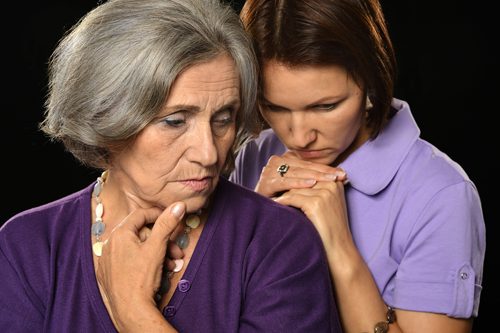Mom’s ‘Little Problem’: How to Handle Parents with Addiction
 Older adults are rarely presented as the image of substance abuse.
Older adults are rarely presented as the image of substance abuse.
Nevertheless, this group confronts unique risks when it comes to addiction. Due to lifestyle factors, older adults can be at an increased risk of developing addictions. The resultant health concerns are also greater with age and can take a severe toll on your loved one’s overall quality of life.
If you suspect your parent is struggling with addiction, you should know as much as possible about what they are facing. Your knowledge could save your parent from having to learn these lessons the hard way.
Risk Factors
Often, common problems among older adults disguise a secret addiction. According to the CDC, older adults and seniors are at an increased risk of developing depression and other mental health disorders. These conditions can present symptoms similar to addiction and can even exist as co-occurring disorders. Family and medical professionals may see changes in behavior as a natural part of aging and fail to identify the underlying addiction without a family member’s intervention.
What is more, older adults have easy access to addictive substances. The population of seniors (65+) in the U.S. makes up only 13% of the total population but accounts for 30% of all prescribed medications. Among these medications are tranquilizers, which are just behind alcohol as the most common addictive substance for seniors. Older adults also tend to share legally prescribed medications with friends, meaning that addiction can quickly spread throughout senior communities.
Addiction can also create or exacerbate health concerns for older adults. Diabetes, cardiovascular disease, and other common medical concerns can all be made worse by substance abuse. Even in hospice cases, where these particular medical concerns may no longer be relevant, substance abuse can inhibit patients from achieving meaning and closure in end-of-life care.
Steps and Barriers
Older adults are more likely to stigmatize addiction, and younger adult relatives may not address the addiction due to an assumption that it is a less urgent problem for older adults. The necessity of addressing this “little problem” comes down to the belief that everyone should have the highest possible quality of life for his or her age and state of health.
Nevertheless, shame could pose a significant barrier to getting your parent the help he or she needs, and you should be prepared for this if you intend to intervene. You will want to be especially careful of how you broach the subject of addiction with your parent so as not to unintentionally trigger shame and resistance to recovery.
For some areas where you’ll want to tread lightly, see this article on the “Do’s and Don’ts” of supporting someone with addiction before recovery. It is important to avoid implying that your parent should be ashamed of his or her addiction if you want him or her to seek help.
Come to the table with all of the information you can find and with the confidence that you are doing the right thing for your parent. Addiction is never a “little problem,” and guiding your parent toward recovery could be the biggest gift you have ever given them.
The National Institute on Drug Abuse (NIDA) and Substance Abuse and Mental Health Services Administration (SAMHSA), have resources to help you determine next steps and ensure that your loved one is as informed as you are about the risks of addiction and how they can move forward.





 Older adults are rarely presented as the image of substance abuse.
Older adults are rarely presented as the image of substance abuse.

